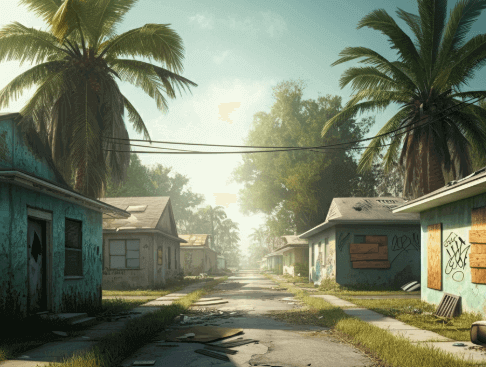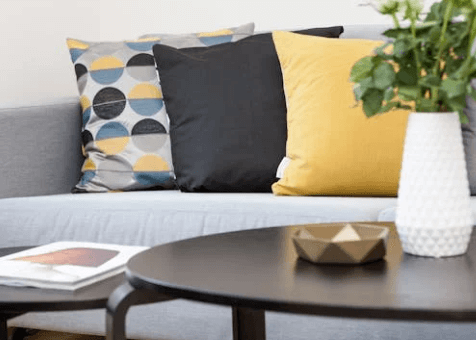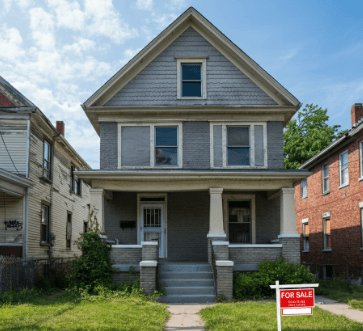The mantra “location, location, location” is frequently hailed as the ultimate determinant of a property’s value and desirability in real estate. However, what if your property’s location is less of a selling point and more of a hurdle to overcome? Many homeowners and real estate investors find selling a house in a bad neighborhood daunting. While the location of a property is a factor you can’t change, some strategies and approaches can remarkably boost the chances of a successful sale, even in less desirable areas. This post aims to arm sellers in Florida with practical tips for selling a house in a bad neighborhood, transforming potential obstacles into selling points, and flipping the odds in your favor.
One effective strategy is to connect with local real estate investors who focus on buying properties for cash. This approach can offer significant advantages. Steve Daria and Joleigh, renowned in the Florida real estate market, are notable for their swift, hassle-free buying process. They focus on homes in less desirable neighborhoods. Their investment approach offers homeowners a viable option to sell quickly, avoiding the prolonged uncertainties of the traditional market.
Introduction to Selling a House in a Bad Neighborhood
Selling a house in a bad neighborhood demands a comprehensive comprehension of the local market dynamics and potential buyers’ perceptions.
While factors such as higher crime rates, subpar school systems, or limited amenities may deter some, it’s essential to acknowledge that every property possesses unique selling points.
Moreover, in a state as multifaceted as Florida, what one person may perceive as a drawback, another may view as an opportunity.

To overcome the challenges of selling in a bad neighborhood, sellers must adopt a proactive stance and implement targeted strategies.
Understanding the Challenge
Understanding the challenge of selling a house in a bad neighborhood in Florida requires a nuanced perspective.
While the term “bad neighborhood” may encompass various factors, such as higher crime rates, lower-quality schools, or a lack of amenities, it’s essential to recognize that perceptions can differ significantly from one individual to another.
In these neighborhoods, sellers often face unique hurdles to attract potential buyers.
Here are the ten tips on how you will overcome the challenge:
1. Price It Right
Pricing is crucial in selling any home, especially in a challenging location.
Create a comparative market analysis (CMA) to see what similar homes in better neighborhoods are selling for, and adjust your expectations accordingly.
Remember, buyers considering your area are likely looking for a deal, so your price should reflect the neighborhood’s drawbacks.
2. Highlight the Positives
Every neighborhood has its silver linings. Your area may boast easy access to highways, proximity to downtown, or unique local eateries and parks.
Whatever your neighborhood’s positives are, ensure they’re front and center in your listing.
3. Invest in Curb Appeal
First impressions are crucial. Investing in curb appeal can make a huge difference in drawing potential buyers.
Simple fixes like painting the exterior, landscaping, and ensuring the entrance is welcoming can change a buyer’s initial perception of the property.
4. Showcase the Home’s Best Features
Inside the home, focus on the features that can make buyers overlook the location.
If your house has large windows, spacious rooms, or unique characteristics, highlight these in your listing photos and during viewings.
Get An Offer Today, Sell In A Matter Of Days
5. Offer Incentives
Sometimes, a little extra can go a long way in sealing the deal.
Proposing to pay closing costs, providing a home warranty, or including appliances can make your home more appealing than others in the area.
6. Focus on Security
Safety concerns are paramount in less desirable neighborhoods.
Ensure potential buyers know if your home includes security features like a modern alarm system, reinforced doors, or motion-sensor lights.
7. Stage Your Home
Staging your home can make it more attractive and help buyers envision living there despite the neighborhood.
Professional staging focuses on the home’s potential, helping to distract from any external negatives.

8. Use High-Quality Photos and Virtual Tours
In today’s digital age, your online listing is your first showing. See websites to list your property for sale.
Use professional-quality photos and offer virtual tours to showcase your home in the best light possible.
This approach can attract buyers from broader areas who might not have considered your neighborhood.
9. Be Honest but Positive
While it’s important to highlight the positives, honesty about the neighborhood’s challenges is crucial.
Be upfront about the area, but focus on how your home solves common concerns.
For instance, if crime rates are higher, emphasize any security systems or community watch programs.
10. Find the Right Agent
Partnering with a real estate agent with a background in selling homes in challenging neighborhoods can be a game-changer.
They can offer tailored advice, market your home aggressively, and negotiate effectively.
Frequently Asked Questions
Below, you’ll find answers to some of the most frequently asked questions about selling a house in less desirable neighborhoods of Florida.
How long does it take to sell a house in a bad neighborhood?
The time it takes can change widely based on market conditions, pricing, and how well the home and its advantages are marketed.
A real estate agent can offer a more specific estimate based on your situation.
Should I consider renting out my home instead of selling it?
Renting could be a viable option, especially if the rental market is strong.
However, being a landlord comes with its own set of challenges and responsibilities. Take a look at the landlord responsibilities in Florida.
Weigh the pros and cons extensively before deciding.
Can I sell my house “as is” in a bad neighborhood?
Yes, but be prepared for offers to reflect the cost of necessary repairs or updates.
Sometimes, investing in minor fixes can significantly increase your property’s appeal and sale price.
Conclusion
Selling a house in a bad neighborhood in Florida requires a mix of strategic pricing, marketing, and a focus on the property’s strengths rather than its location. These tips and working with a skillful real estate agent can boost your chances of a successful sale. Remember, every neighborhood has its market – it’s all about finding the right buyer willing to see the potential in your home.
**NOTICE: Please note that the content presented in this post is intended solely for informational and educational purposes. It should not be construed as legal or financial advice or relied upon as a replacement for consultation with a qualified attorney or CPA. For specific guidance on legal or financial matters, readers are encouraged to seek professional assistance from an attorney, CPA, or other appropriate professional regarding the subject matter.

